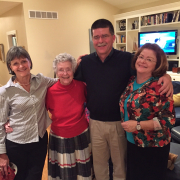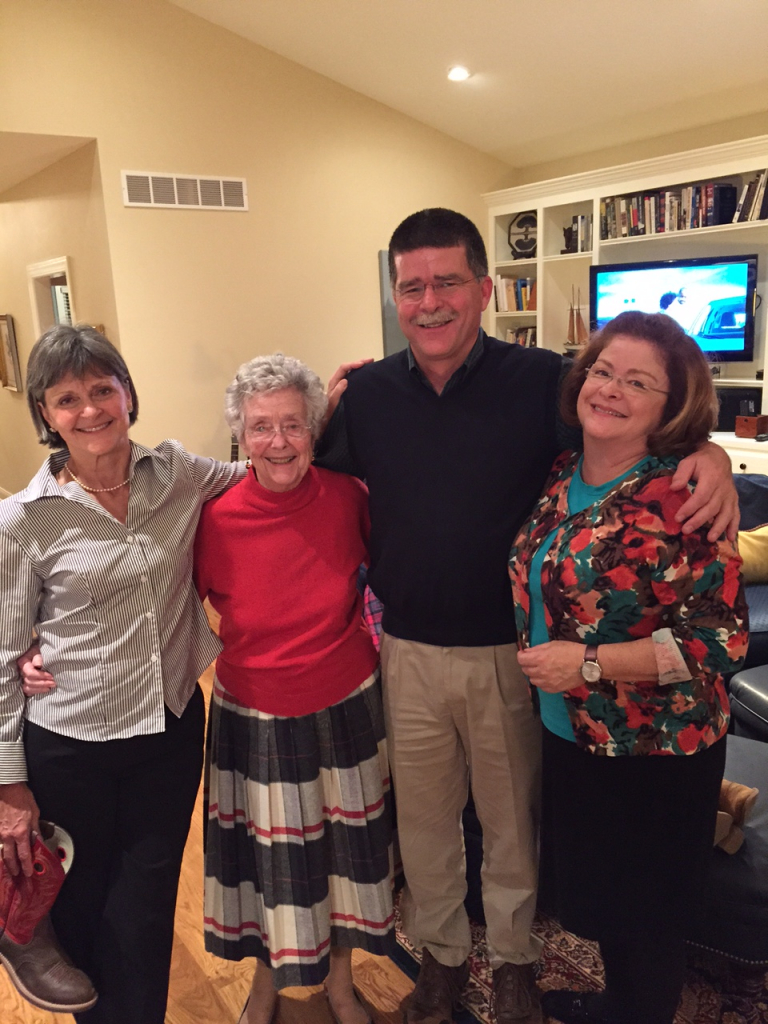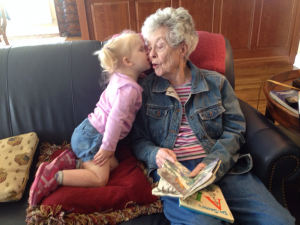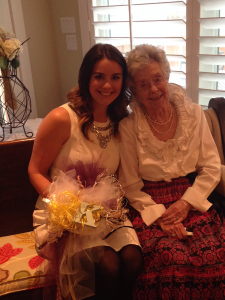
“I declare, I believe that boy has a hollow leg.”
This affectionate observation was delivered many years back at family dinners by our great uncle, watching in good-humored amazement as my little brother worked deftly through his heavily laden plate of food. It was briefly amusing, I remember, to wonder if my brother could really be an oddity whose stomach actually stretched down to his ankle. But my sisters and I had long since stopped noticing the volume of his intake. He was a sturdy, active, growing boy who became, as the great author Russell Baker phrased it in his memoir, a prodigious trencherman at the table.
The mysteries of anatomy, capacity, and appetite as they relate to children floated back in memory recently as I watched my grandchildren at my dinner table. When it comes to the concept of hollow legs, my uncle would have said they appear to have four, between the two of them. Meal preparation therefore requires strategic thought and careful procurement. One must steel oneself to meet the occasional tactical error with determination to carry on, and nurture the fervent hope that volume errors run to the high, not the low, side.
These children are among the very fortunate who can count on their parents for three squares a day, a blessing none of us takes lightly in today’s world. And I’m proud to observe that the parents are very careful feeders, very nutrition-savvy, and there is no visible evidence of junk food in the house. Neither child shows an ounce of extra flesh, so the voracious consumption is clearly not overtaking the body’s demand for nutrients.
 The “I’m hungry” chorus seems to be moderating slightly with our Buddy, who at almost five is tall and slim for his age, a great eater, but no longer as relentlessly ravenous as his younger sister. At almost three, Sis demonstrates precocious multi-tasking skills, juggling a morsel or bite of something in her hands at almost all times, during most activities, unless she puts down the food to pick up a glass of something. A traditionalist disciplinarian might frown on this constant snacking between meals, but I can attest that it does nothing to diminish her appetite for actual meals, so who am I to question it?
The “I’m hungry” chorus seems to be moderating slightly with our Buddy, who at almost five is tall and slim for his age, a great eater, but no longer as relentlessly ravenous as his younger sister. At almost three, Sis demonstrates precocious multi-tasking skills, juggling a morsel or bite of something in her hands at almost all times, during most activities, unless she puts down the food to pick up a glass of something. A traditionalist disciplinarian might frown on this constant snacking between meals, but I can attest that it does nothing to diminish her appetite for actual meals, so who am I to question it?
Any grandmother wants to provide what the small ones want and need, so I laid out what I hoped was a respectable game plan for this recent Sunday dinner, taking only the occasional liberty in my selections. Sis generally requests sustenance about 20 seconds post-arrival, and I was ready. Spying small bowls being filled with well-known, crunchy orange crackers, one each for her and Buddy (an essential strategy for avoiding conflict), she shrieked, “GOLDFISH!!”, and I knew I struck a positive opening chord. The main meal followed within a respectable period of time, hearty choices for a very cold day: pork roast with potatoes, carrots, and baked zucchini. This menu revealed a tactical error in volume production and a surprising fact: Sis is a huge carrot fan, possibly a rabbit in a former life, and the stock of carrots ran short of the demand. Who would have guessed it?
Curiosity later spurred me to a bit of online research on appetite and children that didn’t yield much, other than the predictable tie to growth spurts. Watching these two, and Sis in particular, I speculate on alternative causes. Surely it takes extra protein to bolster you to badger your older brother incessantly. Massive vitamins must feed the part of the brain that makes you refuse to put on your shoes, to deny you need to go to the potty, to insist that you are not even close to being sleepy. Folic acid and possibly extra fiber probably make it possible to cover your eyes when your mother sternly insists, “Look at me.” Does eating so many apples, like the Eve of the Old Testament, fuel the desire to take off your clothes at the most unlikely times and places?
Whatever the reasons, we do our best with this phase, until we come to the next one. Less than an hour after plowing through her pork and potatoes and stoically accepting the Carrot Famine, Sis crawled into my lap for sympathy, her brow furrowed in a fret. “Evie,” she said, with almost a touch of sadness, “I’m hungry.”





 Many of us have known those who do not or cannot face such things in the same spirit as my mother, people who are thrown sideways or backward by terribly tragedy and injustice and don’t have the tools within their hearts to recover. The difference between them and people with the personality and faith of my mother is the subject of spiritual study, psychological analysis, genetics, and many other things beyond my scope of understanding. What makes some people brave and spiritually strong, while others struggle? How we all wish the answers were more forthcoming.
Many of us have known those who do not or cannot face such things in the same spirit as my mother, people who are thrown sideways or backward by terribly tragedy and injustice and don’t have the tools within their hearts to recover. The difference between them and people with the personality and faith of my mother is the subject of spiritual study, psychological analysis, genetics, and many other things beyond my scope of understanding. What makes some people brave and spiritually strong, while others struggle? How we all wish the answers were more forthcoming.